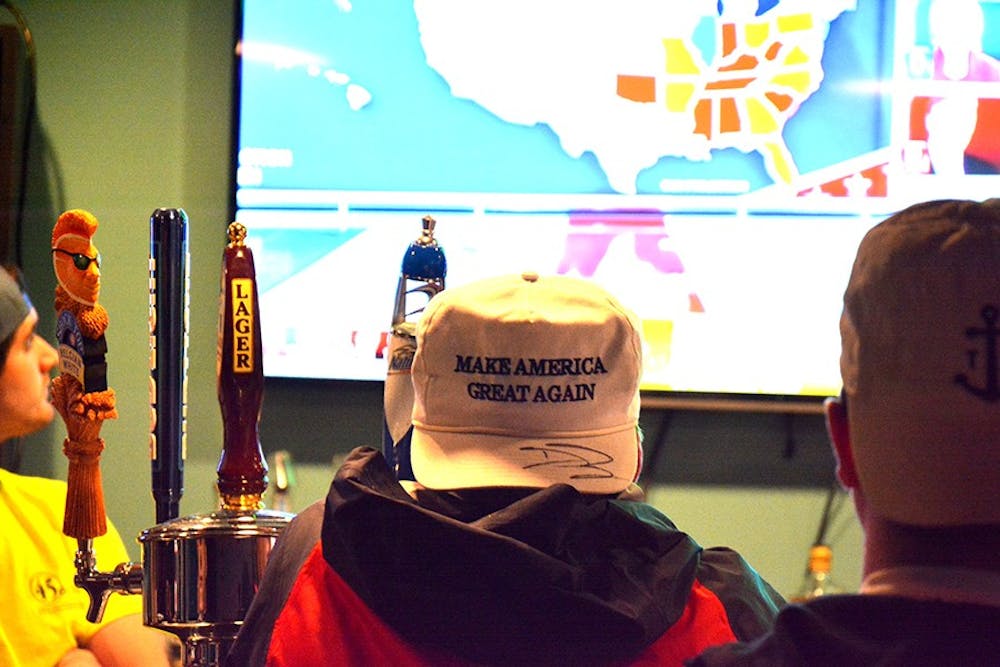By James Steinbauer, Editor-in-Chief
It was one of the most oft-repeated statistics of the 2016 election: college-educated voters, overwhelmingly, were throwing their support behind Hillary Clinton. But at Miami, nearly a third of the students who responded to a Miami Student poll said they would cast their ballots for Donald J. Trump.
It's true that many of Trump's backers live in the poor, rural parts of the United States that haven't experienced the benefits of a stabilizing economy -- the gaping swaths of red on the electoral map that the media, Democrats and many of the college-educated wrote off as insignificant.
But according to exit poll data, 49 percent of white college graduates voted for him, too. On Miami's campus, those supporters manifested themselves as affluent and, for the most part, male. They aren't struggling to put food on the table. Their support was built on a cultural identity of sexism, racism and thoughtless patriotic zeal.
Their decision, and the outcome of this election -- Clinton's devastating political demise -- was fueled by privilege.
On Monday, Oct. 24, Donald Trump Jr. spoke to a Brick Street bar brimming with this bro-electorate while protesters convened along High Street outside.
"I was sexually assaulted in this bar," one protester's sign read. "It is NOT just 'locker room talk,'" alluding to the president-elect's lewd comments to Billy Bush in 2005, when he bragged about kissing, groping and trying to have sex with women without consent.
Miami Student reporters waiting in line overheard a Trump supporter's reaction to the protester:
"They should have picked a more attractive girl to hold that sign," he said. He didn't think about what he was saying, he would say -- it was just a joke told to his friends.
But we heard him. And we heard the rest of you, too -- the whole crowd inside Brick Street that day.
We listened while you cheered "Trump that bitch!" in front of children, mothers, grandmothers and girlfriends with little regard for the implications of using that word. You didn't think about what you were saying.
You cheered like all of this was a game. Instead of focusing on the candidates' policies, the average voter treats party politics like a sports rivalry, according to a study from the University of Kansas. It's not hard to find the parallels here at Miami.
Enjoy what you're reading?
Signup for our newsletter
On Tuesday night, some of you were back at Brick Street. It was like you were watching any old football game -- the Super Bowl-like finale to a six-month-long tailgate. You just exchanged your dingy jerseys for bright red "Make America Great Again" hats.
And in all your fan fervor, you didn't think about what this choice meant for the environment, the economy, the right to choose, women, immigrants, the LGBTQ+ community, the black community, Mexicans, Muslims, the disabled, the sick and the poor -- including many who live in rural America.
You thought only of yourselves. And now we all have to live with the consequences.
steinbjt@miamioh.edu




